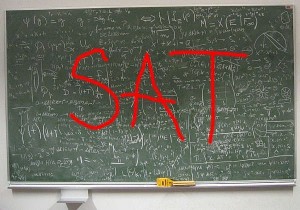When you’re a parent of a college-bound teen you have a ton of questions. Every day brings a new list of “how do I…, where do we find…, how do we do….; you get the picture! And if it’s questions you have and answers you need, one of the best places to go is #CampusChat on Twitter. Each week, @collegevisit hosts some experts in the field of college admissions and this past week was no exception.
 This week’s guest was the ever flamboyant, always pithy, and never disappointing @akilbello of BellCurves.com. Since Akil was a captive expert about everything you wanted to know about standardized tests but were afraid to ask, I took the opportunity to listen (or read since it was a TweetChat) and soak up all his knowledge. And of course, the ever sharing, always helpful Parent College Coach that I am—I wanted to share the information with my readers.
This week’s guest was the ever flamboyant, always pithy, and never disappointing @akilbello of BellCurves.com. Since Akil was a captive expert about everything you wanted to know about standardized tests but were afraid to ask, I took the opportunity to listen (or read since it was a TweetChat) and soak up all his knowledge. And of course, the ever sharing, always helpful Parent College Coach that I am—I wanted to share the information with my readers.
Akil began by saying:
Test prep involves 2 things: learning to use the nuances of the test to your advantage and ensuring you have the information tested. If the student has one but not the other they will probably “not test well” but too many people see the test format as the problem.
———-
Eureka! I can’t tell you how many parents say their teens just don’t test well (I was guilty of that one myself!)
———
When queried about the need for standardized tests, Akil replied:
Standardized tests are the buzz saw used in open heart surgery.
The SAT is fair in the way that a free throw contest is fair. It’s still a bad way to choose a basketball team.
Whether its requirement to wear a pink tutu or the SAT, colleges will always have some deterrent—they must!
Imagine trying to review 10,000 high school transcripts to find 1,000 students and not knowing if the school is inflating grades.
———
Revelation! Although none of us “like” those stress producers, they do serve their purpose in allowing the admissions officials to level the playing field and narrow down the applicants.
——–
Then, I asked a question of my own–
What should parents/students look for when choosing a test prep company?
Look for type of focus: test-taking tricks (guessing strategies, pacing) or content (teaching vocabulary, math rules) duration of the program (courses range from 18 – 40 hours), quality of material, and type of people hired (smart or good teachers).
Don’t let “our teachers score perfect” sway you. Go see the teachers in action. Some smart people are horrible teachers
Avoid really large classes, really short classes, and classes taught by people with no testing experience.
——–
Finally! A straight, concise answer to a question that so many parents have asked me.
——–
Then, if that wasn’t enough, he tacked on an article to boot:
Here is a good post on teaching
http://gmat.bellcurves.com/blog/2010/03/13/einstein-cant-teach-me-physics/
The bottom line–
Akil said, “Use a test prep organization for the same reason you hire a plumber and with the same caution.”
Akil delivered! Check out his website (http://sat.bellcurves.com/) and show him some love on Twitter (@akilbello). It’s always great to find an expert in this field that openly provides advice and help.
Eureka!
 FREE? What’s the catch? There is none. All you have to do is follow the link below and download the book. Summer is a great time to study for standardized tests and with vocabulary a key component, every student should take advance of this FREE offer.
FREE? What’s the catch? There is none. All you have to do is follow the link below and download the book. Summer is a great time to study for standardized tests and with vocabulary a key component, every student should take advance of this FREE offer.






